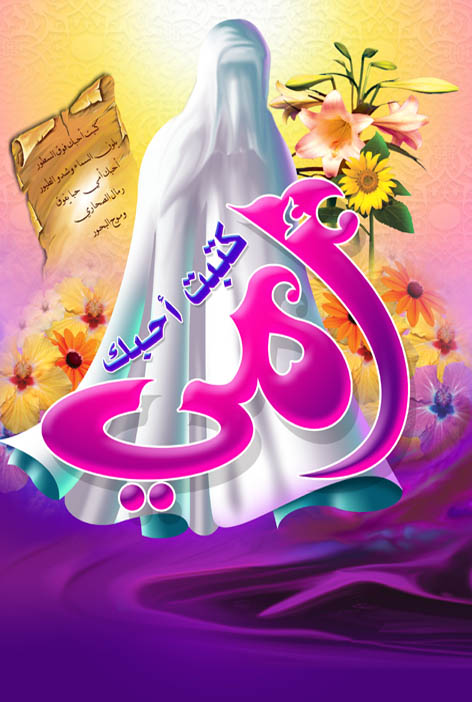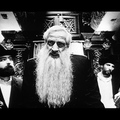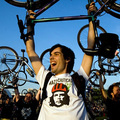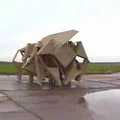
Aki szereti a gregoriánt, az a nashídot (أناشيد) is szeretni fogja
Aki látta a híres-neves iraki orvlövész, Juba videóját, aki amerikai katonákat lődöz Bagdadban, az bizonyára a félelmetes szépségű énekre is emlékszik, ami a gyilkolászásokat kíséri. A nashidok (keresőszavak: nashid, anashid, anasheed, nasheed) iszlám-irányultságú dalok, csupán minimális hangszeres (ütős) kísérettel, mivel egyes muszlim hittudósok szerint az iszlám nem fér össze a zenekari kísérettel. Persze ezt sokan vitatják, egyes fundamentalista elborultak szerint maga az éneklés is tilos, de az újhullámosok szerint mindenféle hangszer megengedett, ameddig a dalok az iszlám értékrendjén belül maradnak.
A megkapóan egyszerű dalok szépsége ejrópai fültulajdonosoknak is feltűnhet, vájtfüllel összevadásztunk egy válogatást keletre induló turistáknak, hogy a helyi boltokban ne nyugati zenék domesztikálását vásárolják össze. MP3 hegyek következnek, letöltésre fel.
http://www.anashed.net/anashed/ashretah/jwad_al_fjr.html
"Jawad Al Fijr", amit a bagdadi mesterlövész is szeret.
http://nasheed.worldofislam.info/
Tömkeleg, vegyes felhozatal.
http://www.sajidine.com/audio-video/audio/anachid/anachid.htm
Szintetizátoros
ez érdekesnek tűnik, Lebanese Forces Official Site, a piros keresztből ítélve valamilyen keresztény milícia, de a honlapjuk állandóan elfárad
http://www.shariahprogram.ca/islamic-songs/english-nasheeds.shtml
angol nyelvű nasídok, csak edzetteknek
http://www.shariahprogram.ca/Nasheed-links-mp3-nasheeds.shtml
vmilyen térítő brigád honlapja
http://niqaabi-4ever.blogspot.com/
nasid blog egy bizonyos Sister Maryamtól
Juba, Baghdad, sniper, videó:
Nasheeds (Arabic: أناشيد; also spelt Nasyid in Malaysia) are Islamic-oriented songs. Traditionally, they are sung a cappella, accompanied only by a daff. This musical style is used because many Muslim scholars interpret Islam as prohibiting the use of musical instruments except for some basic percussion. Despite what might be considered a handicap, Nasheeds are spreading across the music network as many people admire the purity and simplicity of the music.
However, a new generation of "Nasheed" artists and groups are increasingly using a wide variety of musical instruments in their art. This has caused controversy amongst the Muslim community because of the vast range of scholalry opinions that exist on Music in Islam. These range from absolutely no music and singing, to that of any musical instruments allowed so long as the subject matter is of an Islamic ethos. There is also a crossover of mainstream music of groups like Outlandish, Aman, and solo artists like Dawud Wharnsby Ali, Sami Yusuf and Idris Phillips, appealing to a significant Muslim crowd and also leading to performance of such artists at Islamic orientated festivals, conferences, concerts and shows (e.g. ISNA, Celebrate Eid, Young Muslims). Other artists and organisations such as Noor Media promote a 100% instrument free stance with nasheeds, differing from the current trends of the increasing usage of instruments in nasheeds.
Nasheeds are also increasingly being accompanied by professionally produced videos for certain tracks. Examples include Madinah Tun-Nabi by Aashiq al-Rasul Al Mu'allim, Meditation, Hasbi Rabbi (all by Sami Yusuf), Du'a by Seven 8 Six, Mercy like the Rain by SHAAM & Our World by Zain Bhikha.
Nasheeds are popular in Middle East, Southeast Asia, and South Asia[citation needed]. They are also popular in the UK among British Muslims.




